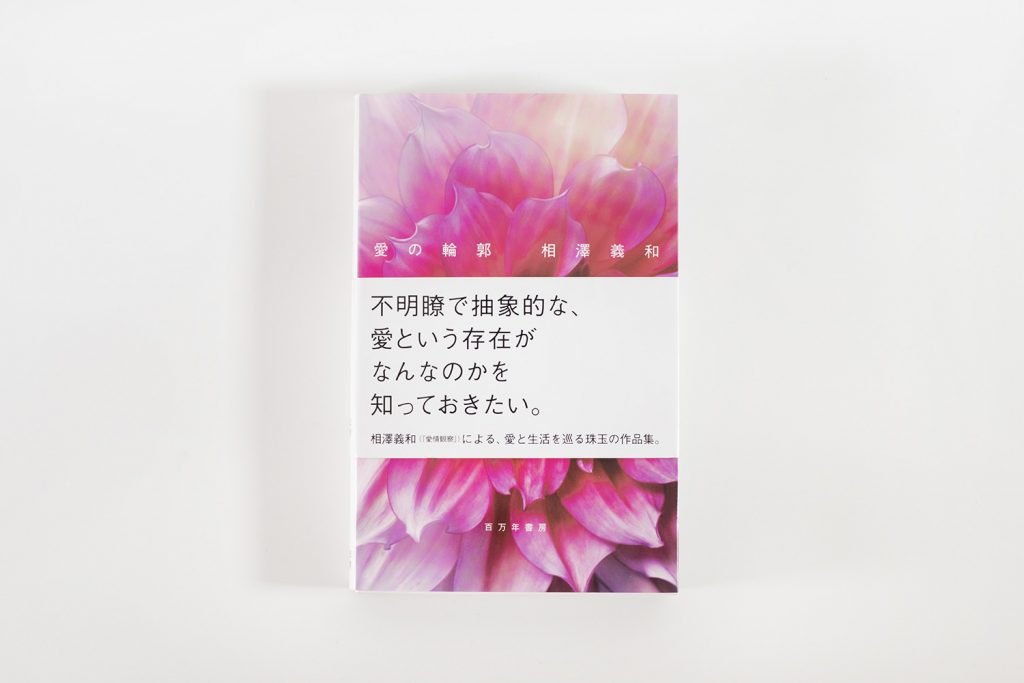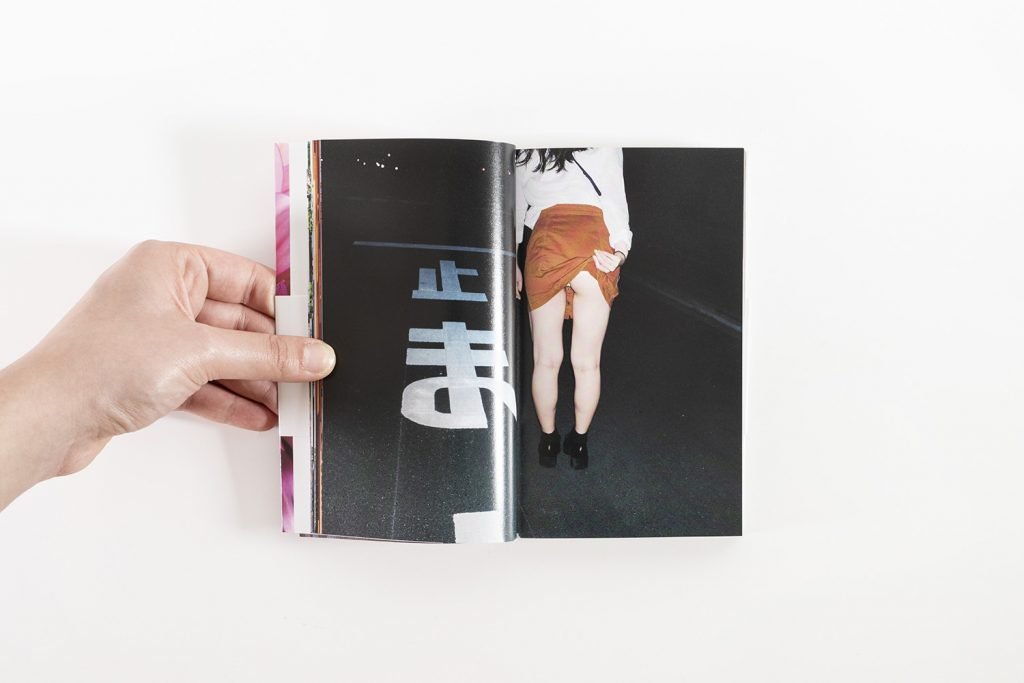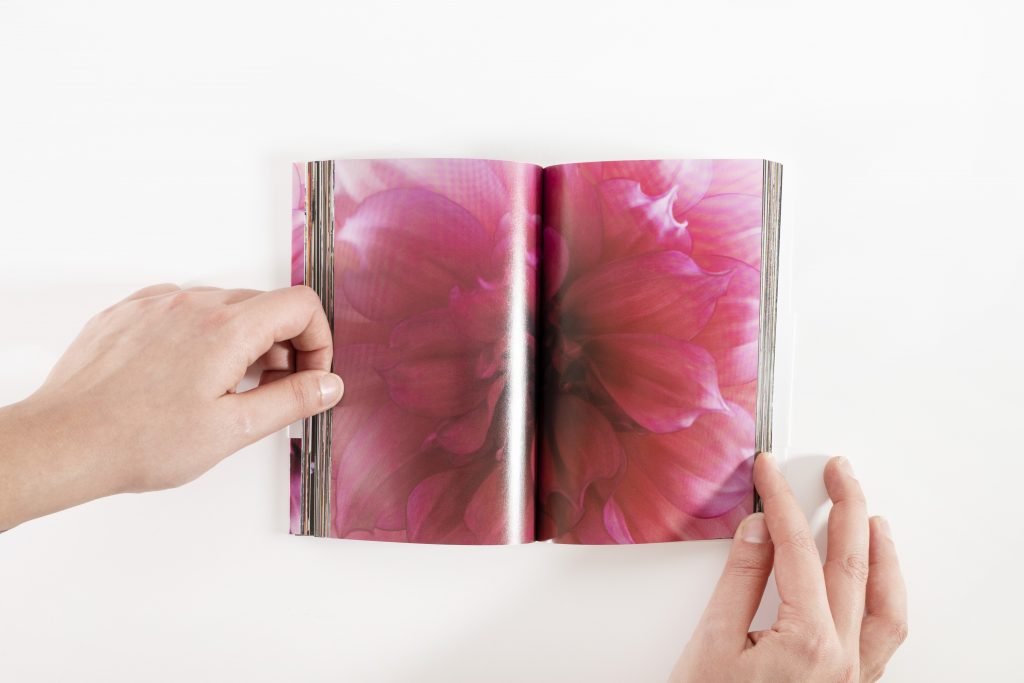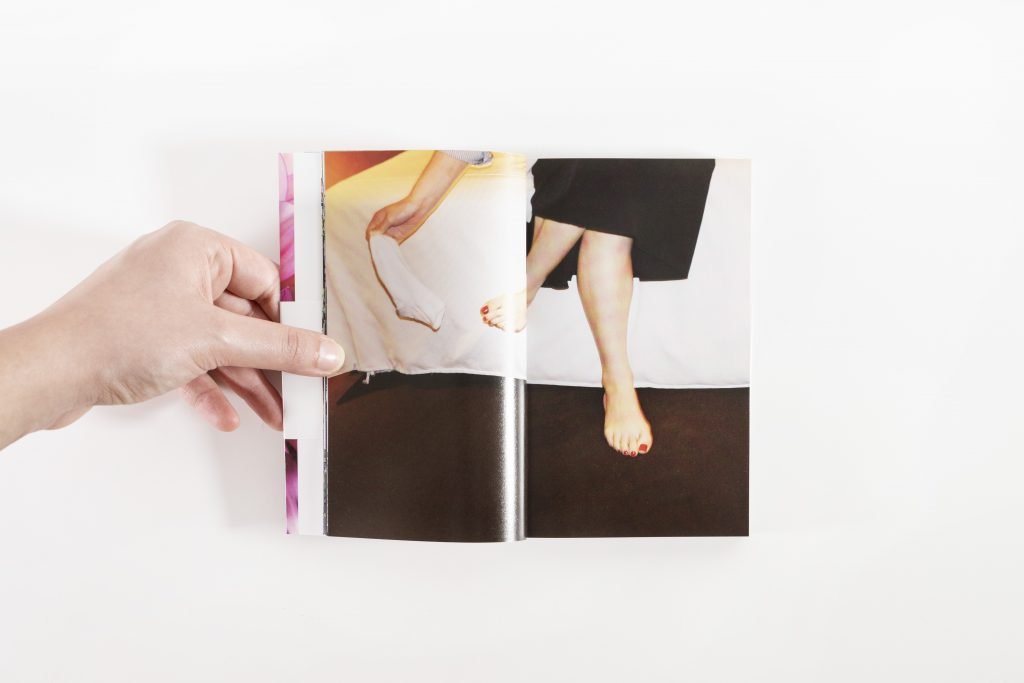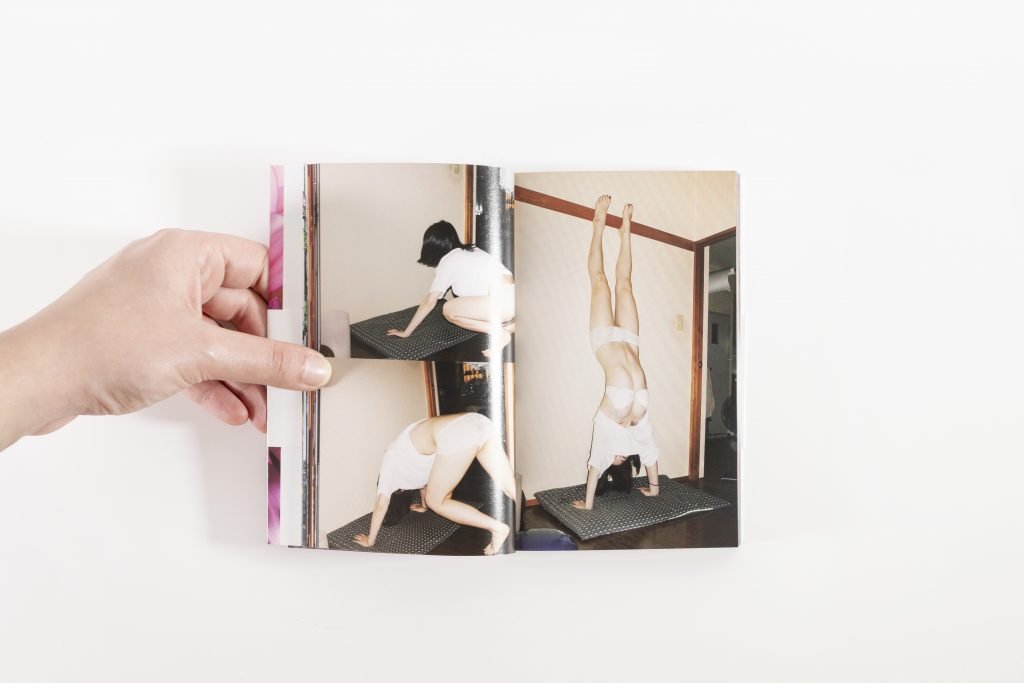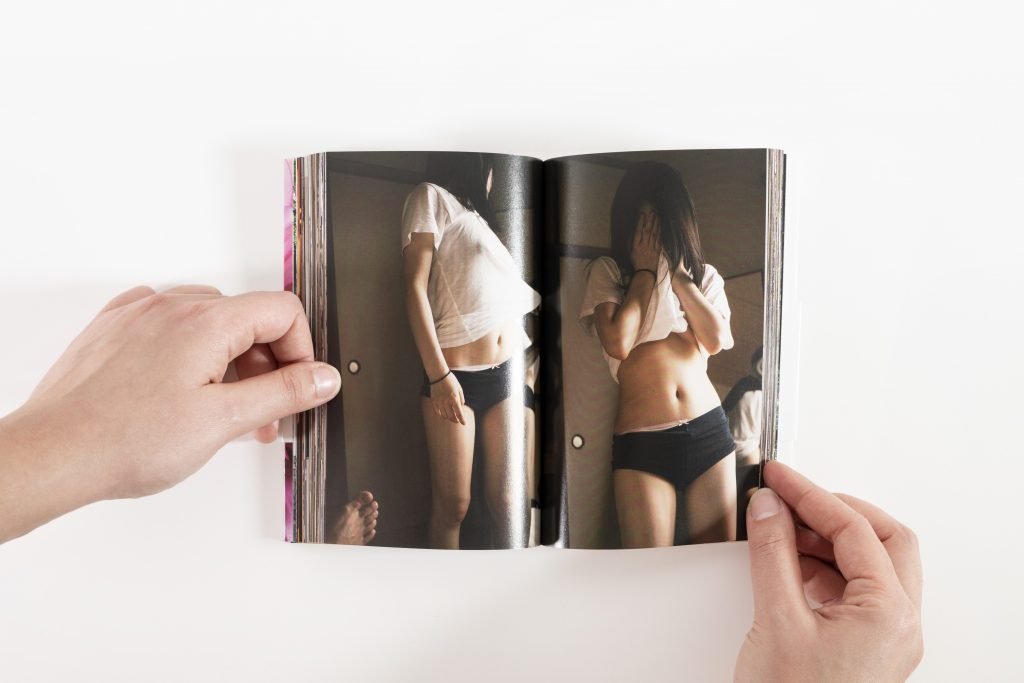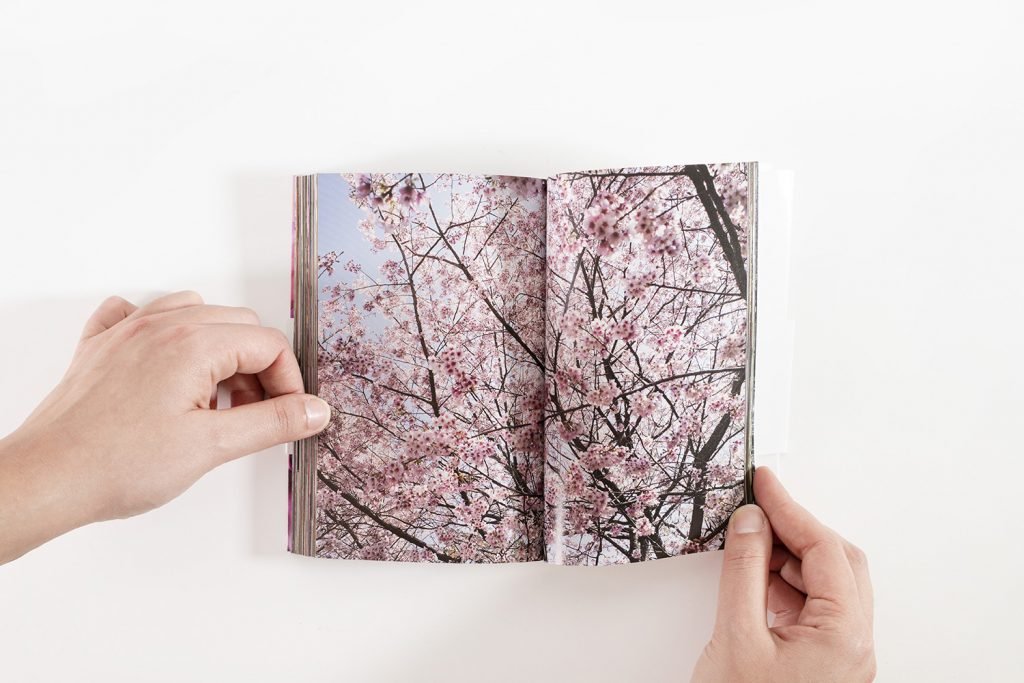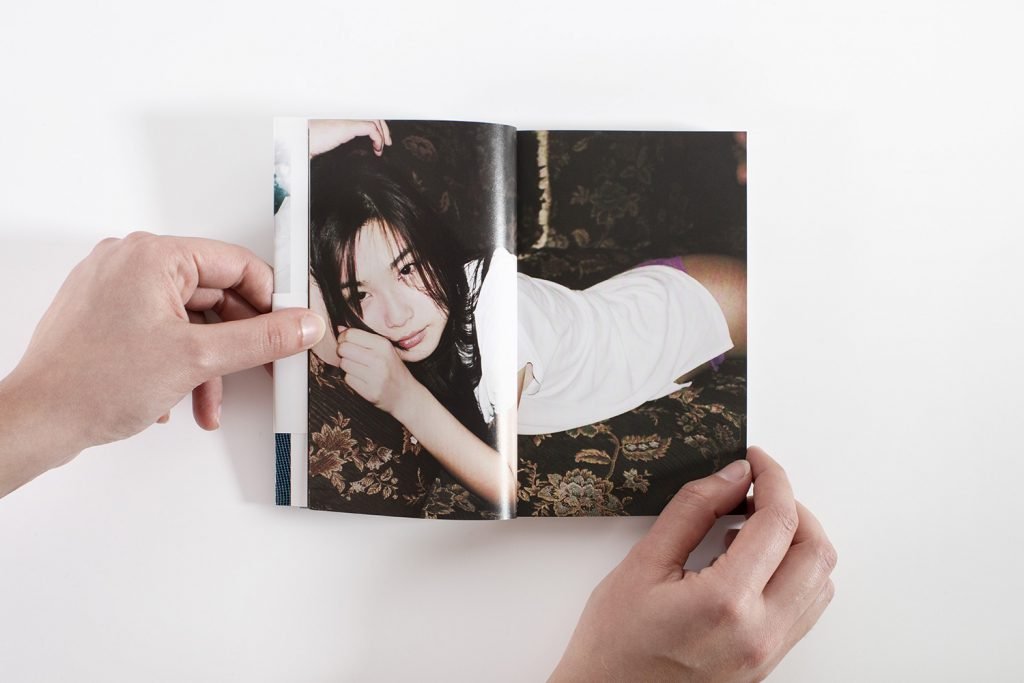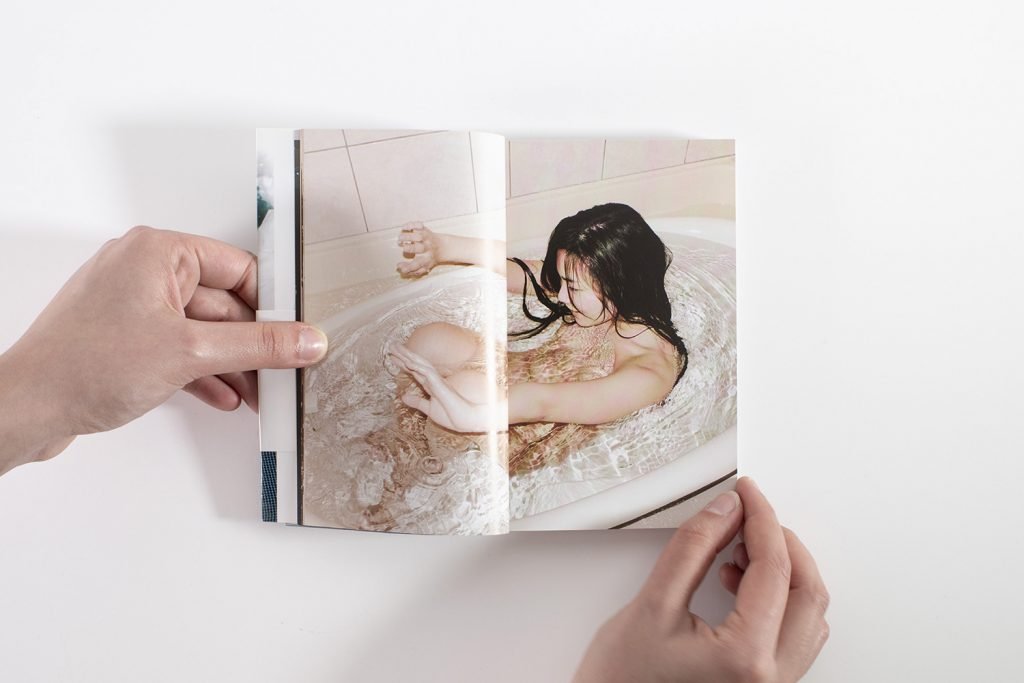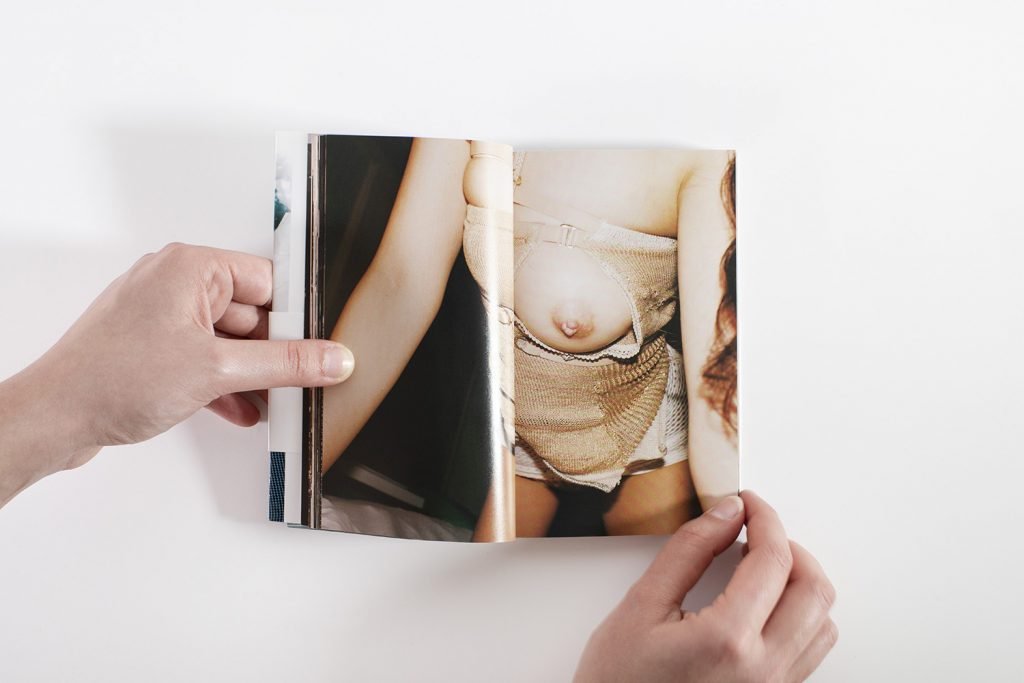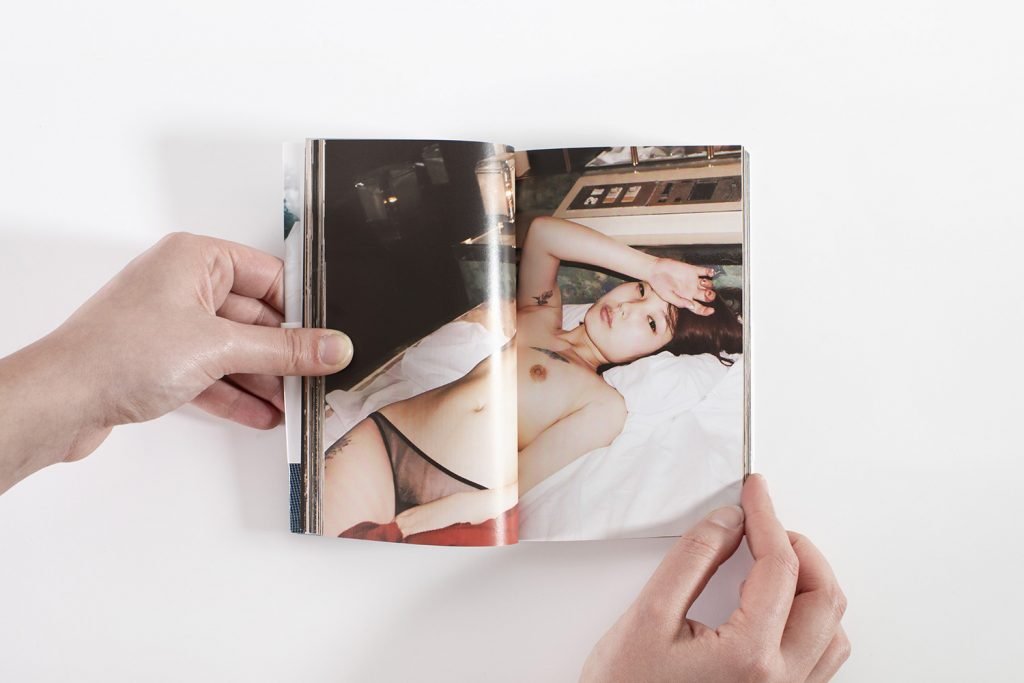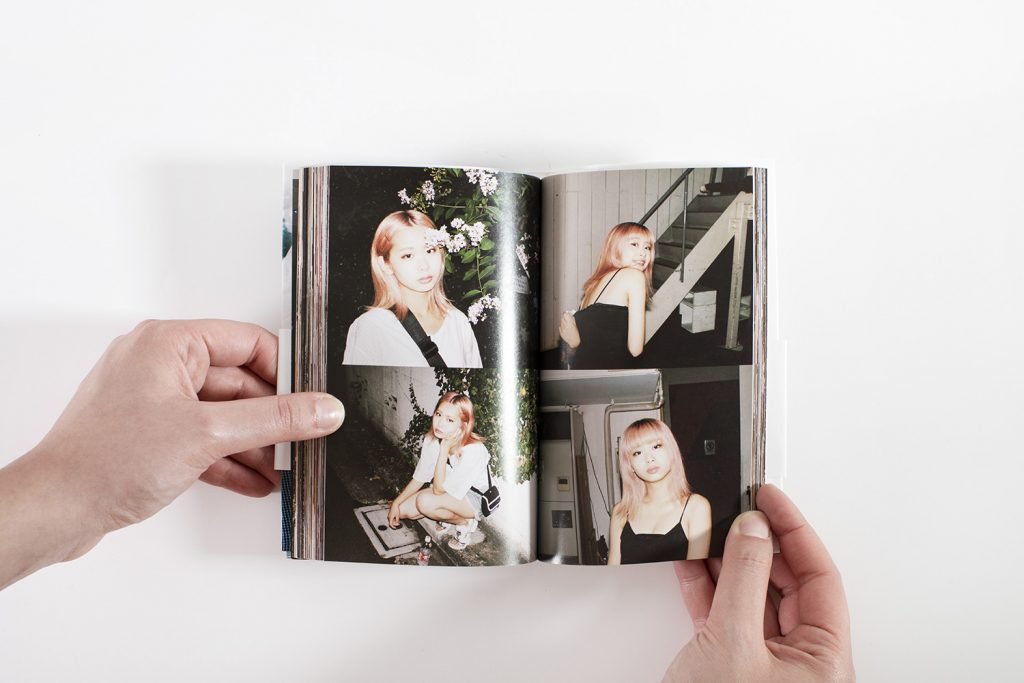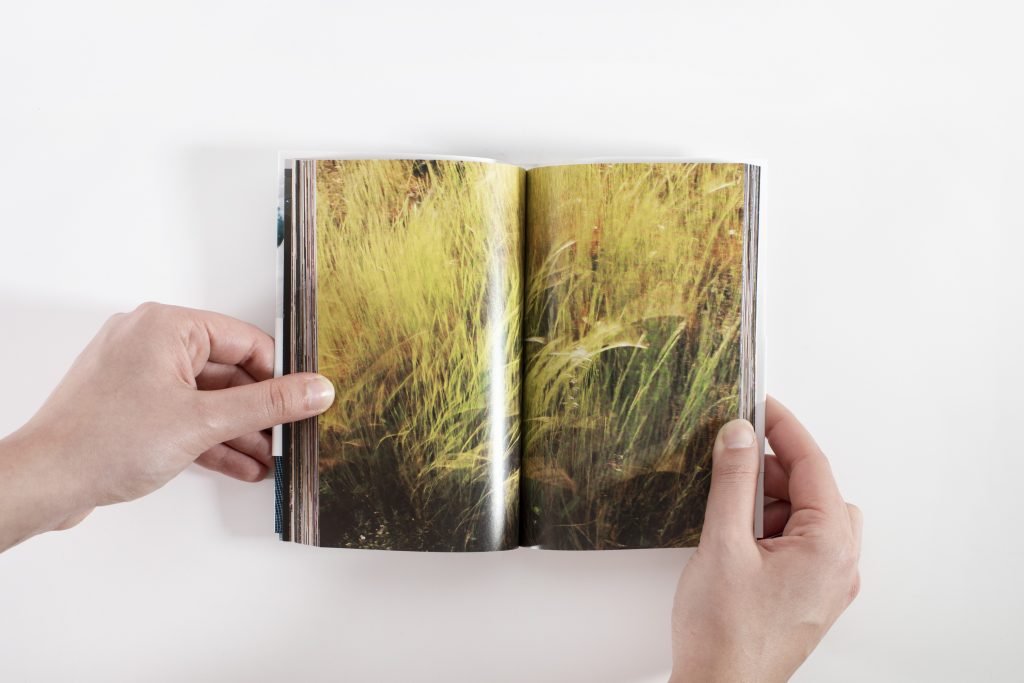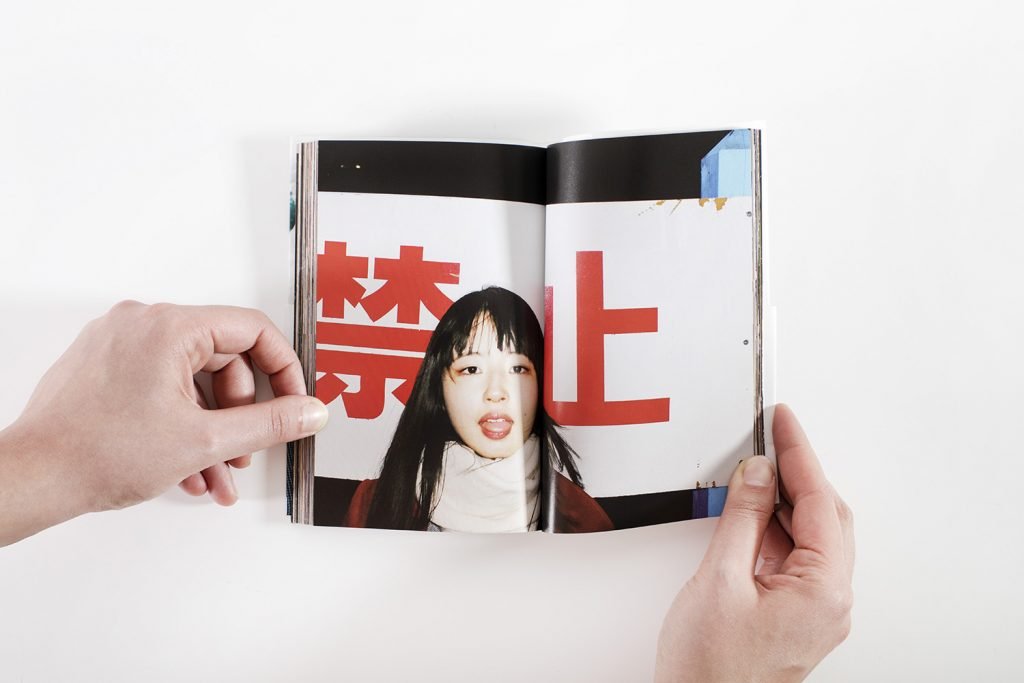AIZAWA YOSHIKAZU
Outline of love
Affection Observation
Publisher: Million Years Bookstore
text by: PHROOM
The work of Aizawa Yoshikazu can be intended as a celebration of femininity.
A subject, the woman, that the japanese photographer based in Tokyo questiones in forms and in everyday life, making the erotic image the climax of an observation path tended to descover both the subject, (often the girlfriend and other friends) and the emotion that this looking and experiencing women arouses in him.
By organizing images as a stream of continuous instances without an apparent hierarchy to distinguish them from each other, the work of Aizawa Yoshikazu records a secret, intimate, intense normality, in which the body, alive, free, lets itself be portrayed naturally, reporting all its spontaneous beauty and truth. A story that stands out and implicitly removes that widespread and sadly stereotyped imagination of the female body and eroticism that seems to be capable of disciplining rather than constituting an exploration of oneself and the other.
Placing himself within a rich visual and narrative tradition such as the Japanese erotic one, Aizawa Yoshikazu is an author whose work is proposed as breezy and innovative but at the same time capable of referring all those signs and postural characterizations typical of a language long meditated in relation to an ancient culture, in which erotic narration, attention to bodies, details and delicate and simply wonderful things, have become one with the spirit of that same tradition.
『愛の輪郭』(Outline of Love)
“When I was young, my girlfriend at the time told me something to the effect of “you don’t see me, you don’t love me”. Not once, not twice, but many times. Those words still ring in my ears, and I’ve been thinking about what it means to see and love someone in a private photographic act.
I want to know what it is to love, which is unclear and abstract. When I spend time with my girlfriend, I always try to respect her without applying stereotypes to her, at least that’s how I try to treat her. I then decided to take a picture of every moment I spent with my girlfriend, every fact that was in front of me. I thought that if I could remove unnecessary concepts from my self-consciousness when I took the photographs, and if I could link the shutter with the waves of my emotions, then the “something” in the photographs would have a high degree of emotional purity, and if I could accumulate these records, then “something like love” would emerge.
At the time of writing, I have known my current girlfriend, who is pictured in this book, for less than three years. Since the first time we met, we have been taking pictures almost constantly during our time together. Although we are a few years apart in age, we have spent our time together laughing and smiling, not so different from any other lovers in the world. We are very similar in that we are not very particular about food. We didn’t waste money, we didn’t dress too fancy, we didn’t gossip and we didn’t speak ill of others, which made me feel at peace.
We had sex many times. Gradually we began to think about our lives, measuring each other’s positions, and we began to know each other’s warmth as human beings and our coldness as animals. I have photographed my lover as far as I can see, in an environment of daily changes, of acceptance and rejection, and sometimes of facts that we don’t want to face.
She is not a talkative person and rarely expresses her thoughts to me in words, but when she is in a good mood, she sings her favourite songs by Nogizaka and Chiaki Bimura with a lot of flair, using her electric motor and TENGA as a microphone. She wasn’t a great singer, but she seemed to be having a great time singing and dancing, and as I pointed my camera at her, I thought that if she could keep doing this, she would be happy.
One day, I was shown a photo of my girlfriend taken by her mother when she was very young.
I saw her as a little girl, looking at her mother’s camera with a proud smile on her face, climbing on the living room table, unafraid of the abundance of love from her family.
It was the same smile that I had seen on her first trip with me, when I had photographed her climbing the breakwater, which she could not climb alone.
When I was able to capture the image of my lover looking at me with a childlike expression, I felt that the outline of “something like love”, which had been unclear until then, became a little clearer.”
Yoshikazu Aizawa
『愛情観察』(Affection Observation)
Over 100,000 followers on Instagram, 6 frozen accounts. This is the long-awaited first book by a photographer who is passionately loved by women and who loves women. This is the very best of Yoshikazu Aizawa, a selection of his most popular works from a group of works that are currently unavailable on the web due to repeated account freezes.
“Realistic but fantastic, personal but sympathetic viewpoints, wonderful girls who don’t seem to exist in real life, raw but beautiful sexuality. I think it’s a woman’s dream to be photographed by Aizawa-san.” (Asami Zenri)
“I learned that the view of a man looking at a woman he likes is so intriguing.” (Sawako Hiraoka)
“The most attractive thing is the women who are the subjects. They are erotic, cute and beautiful. They are all erotic, pretty and beautiful, and this glamour is not created by Mr. Aizawa. They are independent, dignified women with a glamour that comes from within. Ms. Aizawa just sees it from the side. For me, Aizawa’s photographs are a reminder that I am a woman. I wonder how she feels when she looks through the viewfinder, and how the model feels when she is looked at. It doesn’t matter any more, and the more you turn the pages, the more silly it seems to be to think about it. The more you turn the pages, the more ridiculous it seems.” (Dadako)
“He captures a woman’s sexy figure, but in a way that is not unpleasant, but rather pleasant. Aizawa’s photographs are a must-see for both loved and unloved women, as just looking at them fills you with a sense of euphoria, as if you are being cherished and loved. Because he is so attractive behind the camera, the women in his photos are free, confident and so sensual.” (nym)
“Girls are ice cream. Aizawa’s eyes melt you softly. A warm, melting, fleeting moment. Thank you for leaving it for us. I love you. Everyone loves him, and everyone wants to be his special one. Of course I am one of them.” (Moegi)

